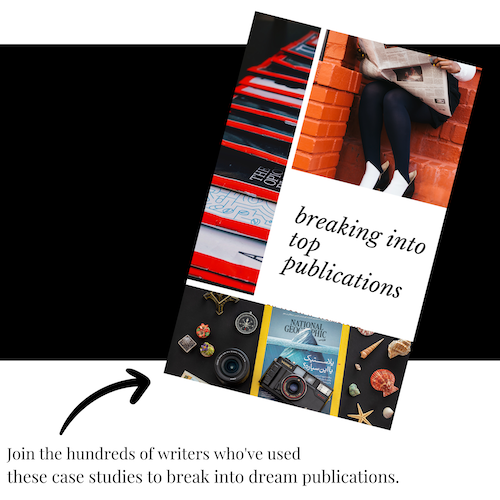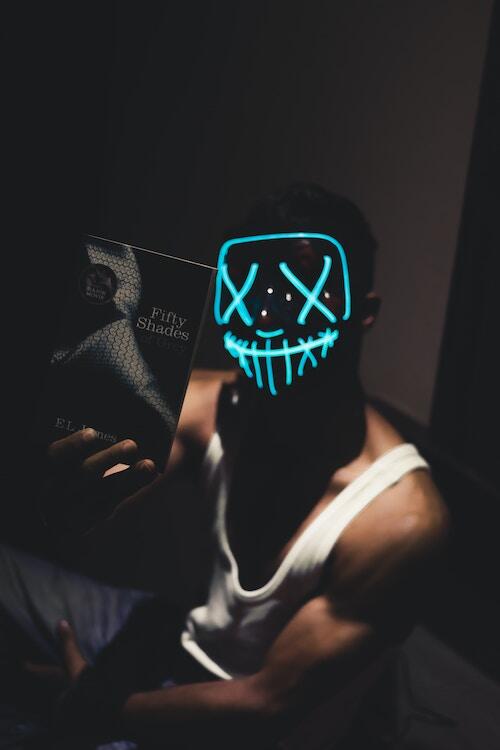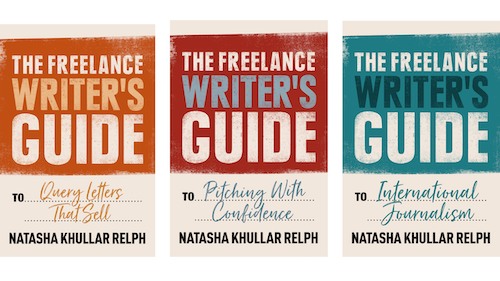
FROM THE EDITOR’S DESK
Happy Thursday, writer friends,
A special welcome to those of you who’re joining us from Twitter and/or Instagram this week.
Here’s a bit about my writing and publishing journey so far if you’re interested in learning what I’m all about.
Anyway, on with the show.
At the beginning of April I launched Operation One Big Holiday. It’s basically a life experiment I’m running, and I needed to give it a catchy name because (1) I need to keep myself amused at all times, and (2) I wanted to get my 11-year-old son involved.
I realized a few weeks ago that in my twenties, my life used to feel like one big holiday. I was a digital nomad before the term became popular and with no fixed address, no fixed schedule, no fixed partner, and no fixed employment, I was as free as a person in the world can be. With that freedom could have come stress, but I don’t recall ever worrying about missed deadlines, not making enough money, or what career success would look like. I lived on the road and yet I got all my work done, I made money, and I felt like I had all the time in the world.
One. Big. Holiday.
Now I work from home and do have all the time in the world. Still, I constantly feel under pressure, at the mercy of a ticking clock. I’m stressed when there’s no need to be, under pressure despite living a life I chose, that I love. I worry endlessly about tomorrow instead of enjoying today.
I wrote a few weeks ago that I was changing my relationship with toxic deadlines and that I was no longer available for the experience of a ticking clock and a racing heart when I write.
Operation One Big Holiday is an extension of that. It’s my attempt to go back to that feeling in my twenties when I was hustling like hell to get my career going and yet, every single day of my life felt like a long, extended, never-ending holiday. I was writing in hotel rooms. In coffee shops. Outside (and inside) pubs. In taxis. On the street. In the park. At friends’ houses. During weddings. While hiding out in mall bathrooms.
During much of that time, I was spending hours in cyber cafes and emailing my writing to myself. It never felt like I was compromising one aspect of my life to make room for another because I wasn’t. I was doing what I loved—writing, traveling, meeting people, exploring the outer world, exploring my inner world. And because I was young and the laptop life hadn’t yet become a fad, I didn’t have preconceived notions of what this life needed to look like, or what the challenges were. I didn’t know all that could stand in my way, and so it didn’t.
Now, I’m aware of far too many things that can stand in my way. And they do.
I believe that what my life looks like at any given moment may not always be my active choice, but it is my responsibility. If it’s not working, it’s on me to fix it.
I’m not interested in a life where work and life are separate and clearly demarcated. Where I have to wait for holidays or weekends or time off to relax. Where I wake up each day with a predetermined schedule. That’s not true happiness or freedom for me.
So I’m fixing it. I’ve embarked on Operation One Big Holiday.
Watch this space for how it’s going.
Enjoy the issue!
Natasha Khullar Relph
Editor, The Wordling
BREAK INTO TOP PUBLICATIONS

Free Resource:
Break into Top Publications: 5 Case Studies
How one writer broke into The New York Times and TIME, became a contributing editor at ELLE, and made more than $10,000 from a single story.
Join the hundreds of writers who’ve used these case studies to break into dream publications.
NEW ON THE WORDLING
The Seven Habits of Highly Productive Writers
The most productive and prolific writers have a few traits in common.
Find Work-Life Balance as a Writing Parent
I started thinking about work-life balance during my pregnancy. Here’s what I’ve learned in the years since then.
NEWS & VIEWS:
Why storytellers will always outsell writers

Two remarkable events happened in the publishing industry in 2022 that caught the trade’s attention.
One, Colleen Hoover became the queen of the bestseller list. At her peak, Hoover had eight books on the New York Times bestseller list simultaneously. Two of her books, It Ends With Us and Verity, sold more than two million copies each. Hoover had initially self-published Verity after her publisher turned it down (this is after she’d already hit the list with previous books.)
(I wrote about Hoover’s journey in this newsletter.)
Two, fantasy author Brandon Sanderson launched the highest-funded Kickstarter campaign of all time, with $41 million raised. (The goal was $1 million.)
Despite these incredible accomplishments, Hoover and Sanderson’s talent—and their fans’ taste—has repeatedly come into question.
But, do they write well?
In this Wired piece that took five months to report, journalist Jason Kehe simply can’t fathom how anyone could find Sanderson or his books interesting. The central question of the piece should have been: how does one author achieve this level of success on his own that publishing insiders spend their careers trying to get to, often unsuccessfully? But no, Kehe can’t get over his own bias, the only question that seemed important to him: “Is Brandon Sanderson even a good writer?”
That question is entirely pointless and can be debated at length. What’s not up for debate is a simple fact: Brandon Sanderson is an excellent storyteller.
So is Colleen Hoover.
And E.L. James.
And Rupi Kaur.
Say what you want about their sentence structure, all these writers have found ways to tell stories that resonate with their readers on a deep, fundamental level.
They’re all exceptional storytellers.
What the industry wants vs. what readers want
Many in the publishing industry and, sadly, many authors, will turn up their noses at these authors and their work. For editors, publishers, and writers who take pride in making sentences sing, in playing with the rhythms and beats of words, a book that seems not to prioritize those aspects of writing seems poorly written. (Though, again, that is up for debate.)
Here’s the thing, though: most readers don’t care about excellent sentence structure. Readers want to be entertained. Readers want to be gripped. Readers want to stay up in the middle of the night to read one more page, one more chapter. They want to know what happens next.
Bad sentences can be and are frequently forgiven. Bad storytelling isn’t.
So, what’s the takeaway?
For most writers, the art of writing excellent sentences is at least half as much fun as telling gripping tales. I would never advise that you no longer prioritize that. However, if you want to make a career of this, if you want your books to reach millions of readers, if you desire to make a living from your writing, then storytelling is key.
Instead of throwing up your hands and saying, “I don’t understand what people see in this author,” study them. Learn from them. Understand why their work resonates so widely with millions of people. Even if you’re not a fan of their sentences. Especially if you’re not a fan of their sentences.
The beautiful sentences will bring in the awards, the book deals.
But it’s the storytelling that brings in readers.
It’s a truth that Kehe takes five months to understand. “So many of us mistake sentences for story, but story is the thing. Things happening. Characters changing. Surprise endings,” he writes.
It’s a lesson all writers should take to heart.
ALSO SEE
Twitter’s in the news again (shocking, I know). Over the last week, Twitter labeled both NPR in the US and the BBC in the UK as “government-funded media,” a label that both organizations took exception to. (NPR has now left the platform.) The social media platform also disabled likes, replies, and retweets of tweets with Substack links, but reversed the ban after widespread criticism.
Speaking of Substack, the company raised money from its writers after a failed VC funding round. The problem? A lack of respect for its writers.
THE WORDLING BOOKS
These books for writers focus on the business of writing and offer fast, no-nonsense advice to boost writers’ incomes and recession-proof their careers.
I’d love for you to check them out.
GLOBAL REPORT
UKRAINE: “In spite of the ongoing war with Russia, the organizers of International Book Arsenal Festival have announced that the event will run this year from June 22-25 in Kyiv. The festival is the largest and most prominent in Ukraine. The festival will be hosted, as usual, in the Old Arsenal of the city, which—the organizers note—also contains a bomb shelter should it become necessary.”
AUSTRALIA: “Media companies have rejected a proposal to reform Australian privacy law, warning that the changes – including a right to sue outlets for serious invasions of privacy – are not in the public interest and would harm press freedom.”
ROMANIA: “Romania will participate in this year’s edition of the London Book Fair after a three-year pause. This means that the country will have its own stand at the fair and a diverse program of events held under the slogan Romania at LBF – Write Where We Belong!”
QUOTE OF THE WEEK
“Not that the story need be long, but it will take a long while to make it short.”
– Henry David Thoreau
SHARE THE WORDLING
The Wordlings are prioritizing their personal writing projects, and this makes giddy with excitement. Share The Wordling with writers who would benefit from prioritizing a few book projects, too.


